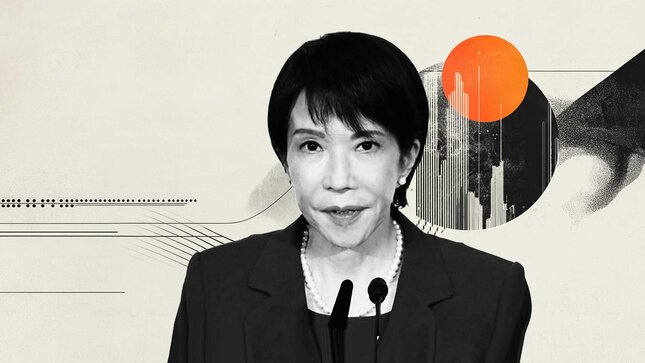So, why weaknesses could improve your performance?
The Fable
Have you ever heard of a fable called “The Tortoise and the Hare“? How many of you have thought about the possibility of winning while being at a disadvantage? How many of you have missed a trade and then were able to re-enter?
And the story goes like… the tortoise beats the hare through sheer persistence and effort. The win is a slow and steady process, but who cares.
THE RESULT
The result is what matters– it’s the P/L stupid! That’s a magnificent and strategic lesson not only in the world of fables, but also in business, as well as, in the trading universe.
That’s a fantastic example in an epoch, where leaders are constantly complaining they are playing against a stronger candidate or looking for excuses for failing.
There are numerous examples of human beings positioned in a disadvantaged state but still “winning the race“. These are not random events and they certainly don’t lead to obscurity.
And The Story Goes…
In the early 1960s, a less-known psychologist named Marvin Eisenstadt began interviewing people that were said to be “innovative” or “creative” in their field. The sample included artists, businessmen, entrepreneurs.
He was looking to find a pattern (or a trend) that repeated itself. After a long period of studying the facts, he discovered that a great number of the kids had lost a parent in childhood. So how come they performed so well?
How was it possible that they progressed to such a level in their careers? Was it coincidental or were the disadvantaged kids using their weakest link in their favour?
Second Research Paper
Another research paper discovered that more than half of the famous poets and writers like Wordsworth, Coleridge, Swift, Edward Gibbon and Thackeray had lost a parent before the age of fifteen. They were seriously disadvantaged compared with their peers.
Early Conclusion
The same psychologist- Eisenstadt searched for biographical information and from his results a very discernible pattern appeared. Of the over 570 people he found reliable information for, over 35% had lost a parent by the age of 15. So he concluded that in a difficult childhood (parental loss in this case) a virtue can be made of necessity…
George Bernard Shaw and Trading
The playwright George Bernard Shaw once put it:
If you ponder on these words for a little while, you can probably find a little particle of your trading career sealed on top of that quote. In fact, great traders tend to be revolutionaries in their uncanny ways.
They could be either contrarian or trend-followers; scalpers or looking for arbitrage opportunities; they could be short or long-term traders… one way or another, the successful trader is the one that tries to find the approach that seems unreasonable to the majority of other traders.
How To Find The “Holy Grail” of Trading?
If you are looking for a successful trading strategy, you should first of all look deeper inside of you. You should re-discover your strengths and weaknesses and do more of what works for you.
You should not blindly follow trading systems or indicators in a hollow hope that you have discovered the holy-grail of trading.
You should be thinking in a way that separates you from the crowds. It is hard to find a right answer, but who cares. All you need is consistency.
How many times I have been asking this question myself. And every time the answers coming back to my mind are so diverse and similar at the same time. Is it really necessary to be that good, or you just want to be profitable???
Losing Battles is Important
For some reason, I often do remember the words that I once read in one of my favourite books- “The Art of Learning” by Josh Waitzkin- a chess world champion (and not only that). His words were that during his whole life he has been searching for stronger opponents.
Losing battles was a part from the long process of winning the war. He believes that has been important for him maintaining a healthy perspective on the game.
The point of this task was to get used with the pressure and make sure that failure did not impact him so strong. That gave him the confidence to reach out to a new dimension, which is known to a lot of traders as “The Zone“.
He was only able to achieve this state through being extremely dedicated to his passion and not being afraid to put himself in situations that were “terra incognita” for the majority of his opponents.
That is how successful traders should be thinking- challenging the stronger and always trying to “walk” in this forbidden for the majority of traders ground.
Instead of conclusion- why trading is important for me?
Is it the money or the prestige that matters?
What is this most sacred thing that makes me “addicted” to this field?
For a lot of traders, it is more or less the adrenaline rush when they are making/losing money. For others, it is an ego-booster or just a way to prove that they are “smarter” and richer (or in most cases poorer) than their peers.
Both groups are wrong.
These are all the wrong reasons for me. Trading is like an ever-expanding process of re-discovering yourself and improving on your weak links.
Trading is like a game of chess or running a successful business enterprise- it is the epitome of the ultimate search towards self-discovery.
In my experience, successful people that shoot for the stars, put their hearts on the line in every battle. In the end, they discover that not the trophies are what made sense in their lives, but the pursuit for excellence itself.
Successful traders have intuitively mastered that the best trades come after a losing streak or are a product of many short-term mistakes, which have amalgamated into an almost intuitive process of beating the odds in the long term.
The extremely successful traders (like strong chess players) will rarely speak of the fundamental or technical factors that lead to their success. Similarly, the great pianist or violinist does not think of single notes, but combines them in a masterful way.
Market wizards know when to “step on the trading pedal” and when to switch from one gear to another in a methodical way that leads to a continuous perfection.
This material is written for educational purposes only. By no means do any of its contents recommend, advocate or urge the buying, selling or holding of any financial instrument whatsoever. Trading and Investing involves high levels of risk. The author expresses personal opinions and will not assume any responsibility whatsoever for the actions of the reader. The author may or may not have positions in Financial Instruments discussed in this newsletter. Future results can be dramatically different from the opinions expressed herein. Past performance does not guarantee future results.
Editors’ Picks

EUR/USD holds firm near 1.1850 amid USD weakness
EUR/USD remains strongly bid around 1.1850 in European trading on Monday. The USD/JPY slide-led broad US Dollar weakness helps the pair build on Friday's recovery ahead of the Eurozone Sentix Investor Confidence data for February.

USD/JPY keeps the red below 157.00 on intervention risks
The Japanese Yen sticks to its modest intraday recovery gains against a broadly weaker US Dollar on the back of speculations that authorities will step in to stem weakness in the domestic currency. In fact, Japanese officials stepped up intervention warnings and confirmed close coordination with the US against disorderly FX moves. This, in turn, triggered an intraday USD/JPY turnaround from the 157.65 region, or a two-week top, touched in reaction to Prime Minister Sanae Takaichi's landslide win in Sunday's election.

Gold remains supported by China's buying and USD weakness as traders eye US data
Gold struggles to capitalize on its intraday move up and remains below the $5,100 mark heading into the European session amid mixed cues. Data released over the weekend showed that the People's Bank of China extended its buying spree for a 15th month in January. Moreover, dovish US Fed expectations and concerns about the central bank's independence drag the US Dollar lower for the second straight day, providing an additional boost to the non-yielding yellow metal.

Cardano steadies as whale selling caps recovery
Cardano (ADA) steadies at $0.27 at the time of writing on Monday after slipping more than 5% in the previous week. On-chain data indicate a bearish trend, with certain whales offloading ADA. However, the technical outlook suggests bearish momentum is weakening, raising the possibility of a short-term relief rebound if buying interest picks up.

Japanese PM Takaichi nabs unprecedented victory – US data eyed this week
I do not think I would be exaggerating to say that Japanese Prime Minister Sanae Takaichi’s snap general election gamble paid off over the weekend – and then some. This secured the Liberal Democratic Party (LDP) an unprecedented mandate just three months into her tenure.
RECOMMENDED LESSONS
Making money in forex is easy if you know how the bankers trade!
I’m often mystified in my educational forex articles why so many traders struggle to make consistent money out of forex trading. The answer has more to do with what they don’t know than what they do know. After working in investment banks for 20 years many of which were as a Chief trader its second knowledge how to extract cash out of the market.
5 Forex News Events You Need To Know
In the fast moving world of currency markets where huge moves can seemingly come from nowhere, it is extremely important for new traders to learn about the various economic indicators and forex news events and releases that shape the markets. Indeed, quickly getting a handle on which data to look out for, what it means, and how to trade it can see new traders quickly become far more profitable and sets up the road to long term success.
Top 10 Chart Patterns Every Trader Should Know
Chart patterns are one of the most effective trading tools for a trader. They are pure price-action, and form on the basis of underlying buying and selling pressure. Chart patterns have a proven track-record, and traders use them to identify continuation or reversal signals, to open positions and identify price targets.
7 Ways to Avoid Forex Scams
The forex industry is recently seeing more and more scams. Here are 7 ways to avoid losing your money in such scams: Forex scams are becoming frequent. Michael Greenberg reports on luxurious expenses, including a submarine bought from the money taken from forex traders. Here’s another report of a forex fraud. So, how can we avoid falling in such forex scams?
What Are the 10 Fatal Mistakes Traders Make
Trading is exciting. Trading is hard. Trading is extremely hard. Some say that it takes more than 10,000 hours to master. Others believe that trading is the way to quick riches. They might be both wrong. What is important to know that no matter how experienced you are, mistakes will be part of the trading process.
The challenge: Timing the market and trader psychology
Successful trading often comes down to timing – entering and exiting trades at the right moments. Yet timing the market is notoriously difficult, largely because human psychology can derail even the best plans. Two powerful emotions in particular – fear and greed – tend to drive trading decisions off course.


